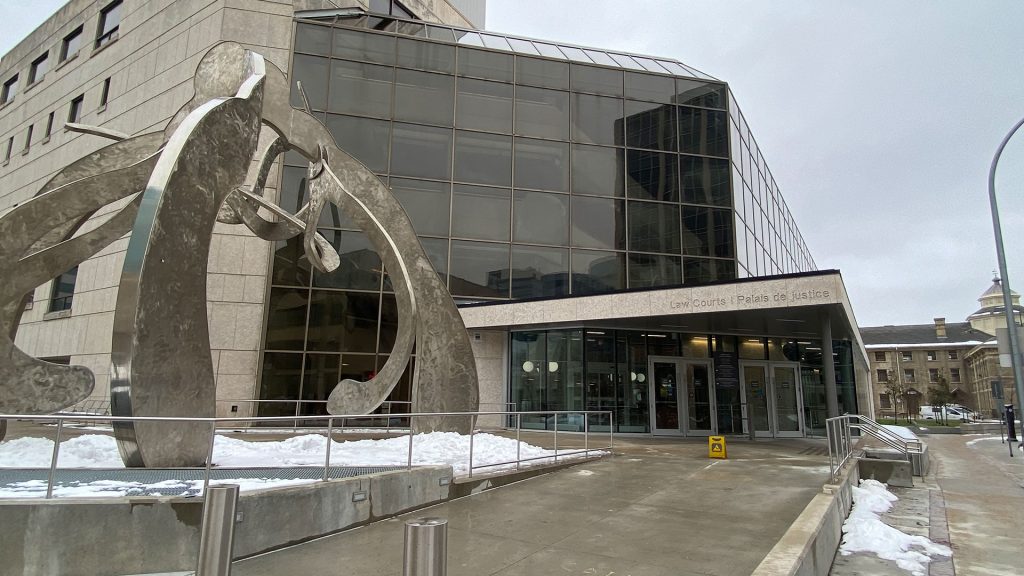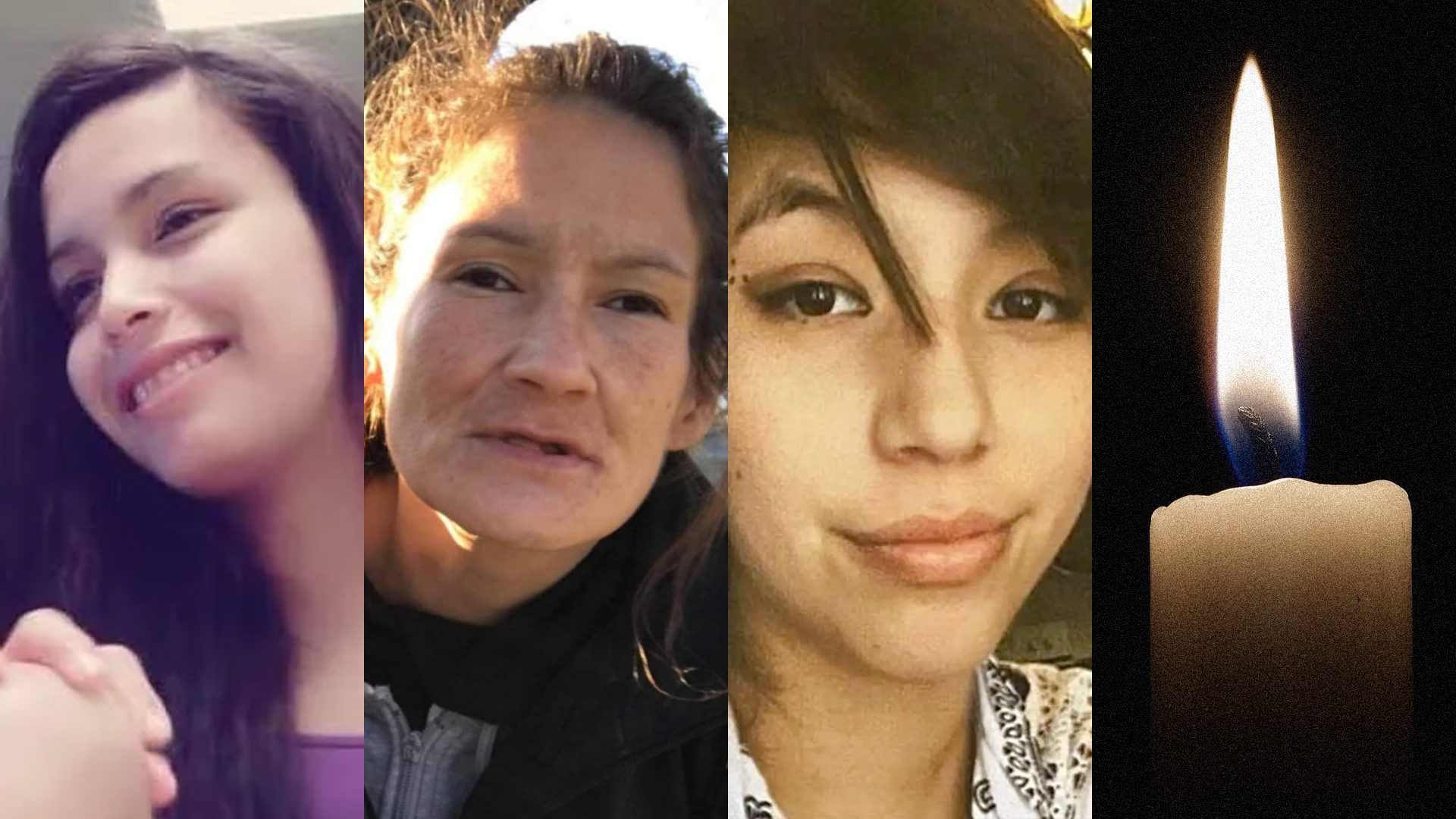
The courthouse in Winnipeg where the trial of Skibicki is taking place. Photo: APTN.
Warning, this story contains graphic details. Please read with care.
Winnipeg prosecutors revealed gruesome details in court Wednesday about the 2022 serial killings now admitted by Jeremy Skibicki, and alleged they were “racially motivated.”
Crown attorney Reneè Lagimodiere outlined the Crown’s case by saying Skibicki murdered four vulnerable, Indigenous women and disposed of them “as though they were garbage.”
Skibicki, 37, confessed the crimes to Winnipeg homicide detectives, but pleaded not guilty in court to four counts of first-degree murder. Then, at the start of his trial on Monday, he pleaded not criminally responsible due to a mental disorder.
Lagimodiere alleged Skibicki was “intentional, purposeful and racially motivated” in committing the crimes between March 15, 2022 and May 16, 2022.
She said he stalked the victims – Rebecca Contois, Morgan Harris, Marcedes Myran and Mashkode Bizhiki’ikwe – at Winnipeg homeless shelters.
Mashkode Bizhiki’ikwe is an Ojibwe spirit name meaning Buffalo Woman gifted the victim by Indigenous leaders. She was the first to be murdered and police have yet to identify her.
Lagimodiere said Skibicki had sex with the victims before he “forcibly confined” them. She alleged he choked or strangled the women, before drowning them in the bathtub of his one-bedroom apartment.
Lagimodiere said two of the victims – Contois, 24, and Myran, 26 – fought back when Skibicki “got rough”, while Harris, 39, was allowed a last cigarette. A cigarette butt with her DNA was later recovered in a garbage bin near Skibicki’s apartment, the Crown said.

While Skibicki sat in the prisoner’s box staring straight ahead, Lagimodiere said he “defiled” the women’s bodies with sexual and other acts.
She said Mashkode Bizhiki’ikwe, which she pronounced in Ojibwe, was believed to be Indigenous and in her mid-20s. She said police recovered the Baby Phat sweater the victim was wearing from a man who claimed to buy it from Skibicki on Facebook Marketplace.
Lagimodiere said Skibicki had known Contois for some time before killing and dismembering her, then dumping her remains in garbage bins hear his suburban home.
“These were hate-filled and cruel acts perpetrated against four vulnerable Indigenous women,” the Crown told Court of King’s Bench Chief Justice Glenn Joyal.
“He preyed on these women in Winnipeg shelters and invited them back to his home, where he assaulted them, often sexually, and killed them.”
Co-Crown counsel Christian Vanderhooft played a 911 call from a man who discovered Contois’ severed head in a green bag on May 16, 2022, while rummaging in a garbage bin near Skibicki’s North Kildonan apartment building.
The scavenger, worried that a garbage truck might come or the person responsible would return, can be heard explaining how he removed the bag from the bin and stowed it in a window-well before calling police.
“It’s human?” asks the 911 operator.
“It’s a human – human female,” confirms the man. “It looks like a young woman.”
Contois’ arms and legs were also located in the bin, said Lagimodiere, while her torso was later recovered in the city’s Brady Road landfill.
Read More:
Mother of Tim McLean recalls his murder and use of not criminally responsible defence in court
Sgt. Greg Allan of the Winnipeg police Homicide Unit testified he identified Skibicki as a suspect and connected him to Contois. He said the tactical unit arrested Skibicki on May 17, 2022, at a southbound bus stop on Henderson Hwy.
“He was quite calm, very composed,” Allan told court. “…We had no concerns for his mental health.”
Allan and his partner interviewed Skibicki on and off over 20 hours. A three-hour portion of that recorded interview was played in court before the noon break.
Skibicki, who looked relaxed and didn’t have the beard he now sports in court, told detectives he was not on any medication.
At one point, he admits he thought he wouldn’t get caught for the killings.
He requests a priest to confess his sins to.
“I really just wanted to see how far I could go because the criminal justice system is a joke,” he told investigators.
“I killed four people.”
Support is available for anyone affected by these reports and the issue of missing and murdered Indigenous people. Immediate emotional assistance and crisis support are available 24 hours a day, seven days a week through a national hotline at 1-844-413-6649.









